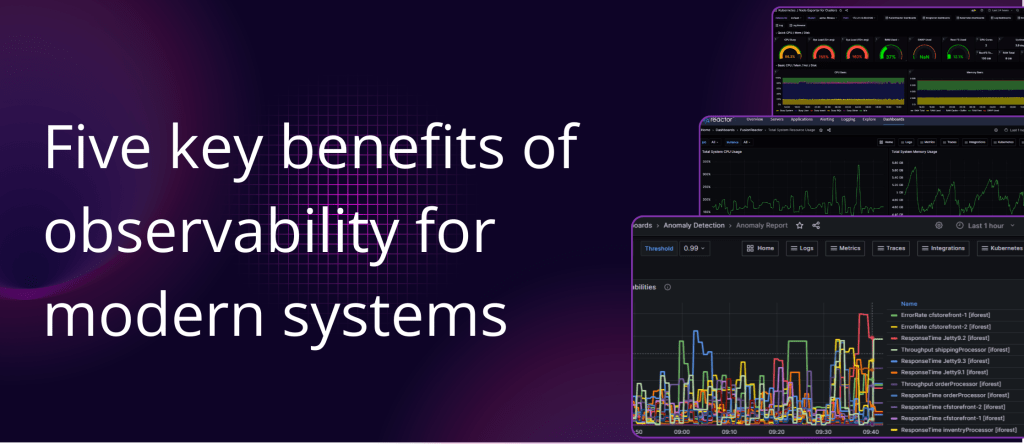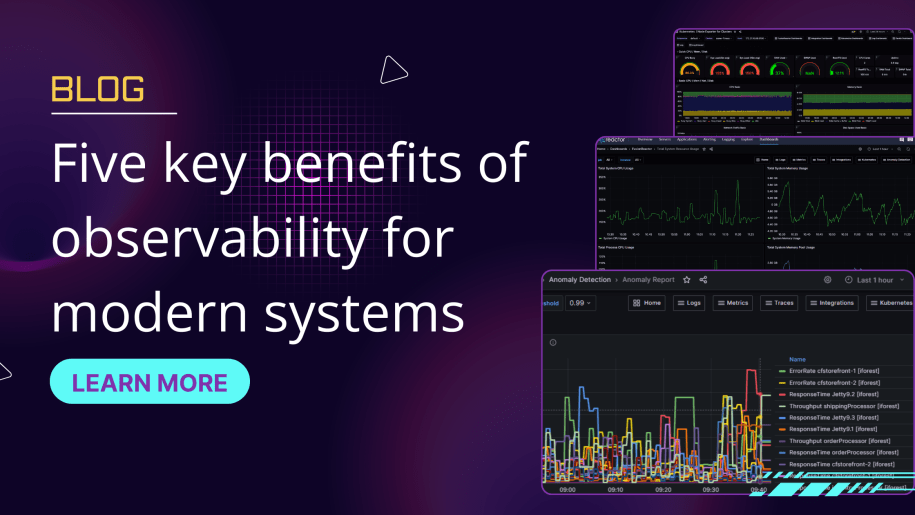
Benefits of observability
In an era where digital infrastructure complexity is ever-increasing, the importance of effective observability cannot be overstated. By leveraging tools like FusionReactor, Observability provides deep insights into systems, ensuring high performance and reliability. Here are five key benefits of observability and why you should consider implementing observability in your systems.
1. Reduced costs and enhanced efficiency
Observability contributes to overall cost reduction and enhanced operational efficiency. Enabling proactive issue resolution and optimizing system performance reduces the need for extensive resource allocation for troubleshooting and maintenance. Moreover, the insights gained from observability can guide strategic decisions that lead to more efficient use of resources and better system design in the long term.
2. Decreased Mean Time to Resolution (MTTR) for incidents
One of the most significant benefits of observability is the reduction in Mean Time to Resolution (MTTR) for incidents. By providing real-time data and insights, observability tools allow teams to respond to and resolve issues more quickly than traditional monitoring methods. This rapid response capability is crucial in minimizing downtime and maintaining continuous system availability.
3. Consolidated view of system health
With the integration of various components in modern systems, having a unified view of their health is essential. Observability provides a consolidated dashboard that reflects all system components’ health and performance metrics. This holistic view enables teams to understand how different parts interact and impact each other, facilitating more informed decision-making and efficient system management.
4. Accelerated root cause analysis
Quickly identifying and resolving issues is crucial in today’s fast-paced digital environment. Observability platforms equipped with GenAI and Open Telemetry integration, like FusionReactor, offer advanced analytical capabilities. They enable teams to rapidly pinpoint the root cause of any problem, reducing the time spent troubleshooting. This swift response is vital in minimizing the impact of issues on system performance and user experience.
5. Enhanced user experience
Observability goes beyond mere monitoring; it provides a comprehensive understanding of the user experience. Tracking every interaction and transaction ensures that any user experience issue can be identified and addressed promptly. This proactive approach to maintaining system performance translates into a seamless, efficient user experience, ultimately leading to higher customer satisfaction and loyalty.
Five key benefits of observability
In conclusion, implementing observability, particularly with advanced platforms like FusionReactor, is a strategic investment for any organization looking to optimize its digital infrastructure. The benefits range from improved user experiences to enhanced operational efficiency, making it an indispensable tool in modern technology.















